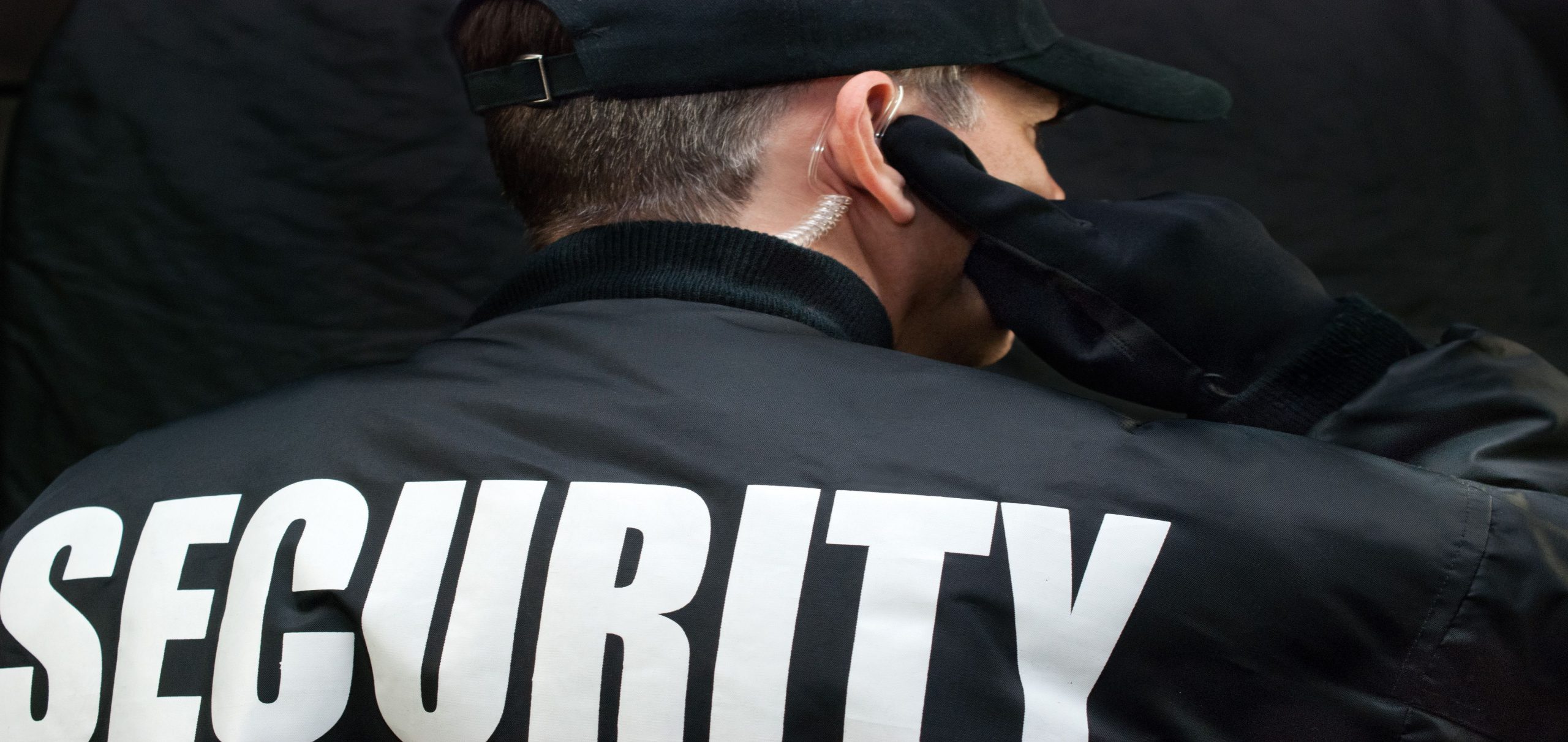Close protection professionals provide superior protection to individuals and groups. They often face heightened criminal activity, terrorism, and other unique threats. Close protection officers, sometimes known as bodyguards, can perform high-profile functions outside of the security industry. They are often featured in films and TV, guarding VIPs, celebrities, and other high-profile clients.
Close protection, which can be linked to personal protection officers. They have become an essential component of modern living. So, many may ask, in fact, what is close protection? How will it help you and your business? This blog will explain all you need about personal protection and its function in your security plan. Moreover, this blog will review the ins and outs of close protection jobs. So, that can include tasks and responsibilities. As well as, the procedure for becoming a bodyguard in the UK in 2024. So, let’s delve into this blog to find out more!

What is close protection, and what is close protection officer?
The main goal of close protection is to reduce risks and avoid injury to the client. Personal protection officers have extensive training in danger assessment, surveillance, crisis management, and conflict resolution. They operate quietly to protect the client’s safety. Thus, they often act in the background while being alert to dangers.
Its long history dates back to the Romans and Ancient Greeks. Those who had specialist military formations to protect critical leaders. Yet, risk factors may have changed over time. But, the concept of personal protection stays the same.
Additionally, the tasks and obligations of the personal Protection Officer tend to be glorified in Hollywood films. Hence, it results in several misunderstandings about the sector. Depending on the customer, they may need contact with fast automobiles, private planes, and yachts. Yet, the grim fact is that most close security services are far less glamorous. Thus, needing anti-social hours and lengthy periods of absence from home.
Who needs close protection? What threats do they protect you from?
Aside from historical characters, many prominent and influential people may need close protection. Besides, anyone at risk of harm may need the help of a personal protection officer. So, it can be either temporary or permanent. Personal protection is a service desired by a broad spectrum of people and organisations facing various possible dangers. This is essential when security concerns are severe and personal safety is paramount. Here are several groups of people that regularly need them:
High-Profile Individuals:
- Celebrities
- Politicians
- Business Executives
Individuals Facing Specific Threats:
- Witnesses or informants
- Individuals involved in legal proceedings
- Those with a history of threats or violence
Executives and Business Leaders:
- CEOs and top-level executives
- Business owners with high visibility
Diplomats and Foreign Leaders:
- Ambassadors
- Consul Generals
- Other high-ranking officials
Individuals in the Public Eyes:
- Social media influencers
- Public figures who have a large following.
We will go into what threats close security protects a person from. Sadly enough, criminal behaviour occurs in all communities and places. Plus, certain people are more likely to become victims of crime. Those in positions of prominence, such as celebrities with large followings or foreign officials. Thus, they are more likely to need tight security daily.
This might be due to past incidents, direct threats, or being in a position of authority that attracts attention. So, close security officers are trained to safeguard their customers. That is, from a wide range of dangers, including but not limited to:
Physical harm:
Close security officers are experienced in assessing and mitigating physical risks. Hence, it serves as a visible deterrent to potential attackers.
Kidnapping and Extortion:
Suppose the individuals are in danger of kidnapping or extortion. Then, they may seek protection services. Thus, preventing criminal activity and safeguarding their safety.
Stalking and Harassment:
If they find themselves being followed or harassed. No worries; they can seek help immediately from a protection officer. Hence, preventing unwanted attention and potential harm.
Reputational Risks:
Close security officers work to defend their clients’ reputations. Thus, they are not subjected to false accusations or risky situations that might ruin their image.
Roles and responsibilities of close protection
Close protection officers are responsible for more than standard security in the complex protection world. These committed experts play an essential role in assuring their clients’ safety and well-being. So, let’s look at the various responsibilities that shape the terrain:
Risk Assessment:
Personal protection officers begin their employment by analysing possible dangers. This includes reviewing the client’s lifestyle, determining known dangers, and finding weaknesses.
Surveillance and Monitoring:
Personal protection officer use modern surveillance tools to keep their continual attention. This involves keeping an eye on your surroundings. Hence, detecting strange activity and anticipating potential hazards.
Crisis Management:
Personal protection officer stands out for their ability. That is, to respond quickly and efficiently to crises. They are taught to manage emergencies calmly and efficiently. So, whether confronted with a security breach, a medical emergency, or an unexpected event.
Client Escort and Transportation:
Ensuring secure transportation is a significant obligation. Close security officers may be responsible for accompanying customers to various places. Thus, creating safe travel routes and managing logistics to reduce dangers during transit.
Crowd Control:
Close security officers manage crowds in public areas while keeping a tight perimeter around the client. This includes crowd assessment, control tactics, and swiftly removing clients from potentially dangerous circumstances.
Communication Skills:
Proper communication is crucial. Close protection officers must communicate clearly and effectively with clients, team members, and other parties. Hence, to ensure effective coordination and responsiveness.
Gun skill:
Depending on local regulations, personal protection officers may be required for extensive firearms training. This skill is utilised only when necessary and is combined with a strong understanding of weapon safety.
Continuous Training:
It is critical to keep up with new security developments. Close security officers attend monthly training sessions. Thus staying current with industry best practices and procedures.
Adaptation:
Close security is a dynamic field that needs adaptation to various surroundings and scenarios. Officers must alter their plans to reflect the ever-changing nature of prospective threats.
Professionalism and discretion:
Professionalism and prudence must be demonstrated without exception. Personal protection officer officers work in the shadows. Thus, respecting the client’s privacy while carrying out their protective tasks.
How to become a bodyguard in the UK in 2024
Now that you know what is close protection and their roles and responsibilities. So, you may be thinking of becoming a bodyguard UK in 2024. Well, look no further! Here’s a brief guide to help you get started in the area of personal protection officer:
Understanding Close Protection:
Start by learning the basics of personal protection. Understand what it includes, your obligations, and the essential role. Hence, you will play a role in safeguarding the safety of others.
SIA Close Protection Licence:
The Security Industry Authority (SIA) is your go-to. Get your SIA Close Protection Licence, a legal prerequisite for operating as a close protection officer in the UK. Thus, this requires a lot of training and certification.
Enrol in Close Protection Courses:
Consider obtaining legitimate close protection training, such as the SIA Close Protection Course or a close protection top up course. These courses provide critical skills such as risk assessment and crisis management. As a result, you are more prepared to face the difficulties. Moreover, our School Of Health Care can provide a certified close protection course. That too for a low price
Meet Physical Fitness Standards:
Physical fitness is vital. Ensure that you meet the needed criteria. This position requires agility and endurance.
Build Relevant Skills:
Improve abilities essential for close security, such as communication, monitoring, and crisis reaction. These talents are the core of your efficiency as a bodyguard.
Gain Practical Experience:
Look for opportunities to gain practical experience. Consider internships, apprenticeships, or entry-level work in the security business. Thus, to gain real-world experience.
Network in the Industry:
Contact specialists in the personal protection officer industry. Networking may lead to new career chances and important insights from industry veterans.
Stay Updated:
The security landscape develops. Continuous learning and professional development allow you to stay up-to-date. That is, on industry trends, new technology, and best practices.
Apply for positions:
Begin applying for personal protection positions. That is, after obtaining your SIA Close Protection Licence and completing any necessary training. So, customise your applications to emphasise your talents and expertise.
Consider Specialisations:
Explore specialisations in personal protection. It can be celebrity protection, corporate security, and event security. Tailoring your knowledge can help you advance your career.
Remember that being a bodyguard needs persistence, ongoing study, and a willingness to hone your talents. So, you should stay focused and agile and accept the difficulties of guaranteeing others’ safety. Thus, in the dynamic arena of personal protection officers. Thus, a close protection course from our School of Health Care can help you with everything.

What are close protection jobs like?
Have you ever wondered what a day in the life of a close protection officer in the UK is like? Let’s take a little tour to give you an idea:
Dynamic Environments:
Close protection jobs are rarely regular. Every day presents new difficulties and possibilities. Hence, from protecting high-profile clients at events to guaranteeing safe travel.
Vigilance is Key:
Constant vigilance is the name of the game. A personal protection officer watches their surroundings for any dangers. Thus, while staying quiet and invisible.
Travel Security:
If you enjoy travelling, close protection jobs sometimes require you to go with clients to several locations. Hence, this necessitates thorough preparation and adaptation to changing situations.
Emphasis on Discretion:
Privacy is essential. Close security officers act with the greatest discretion. Thus, protecting their customers’ privacy while keeping them secure.
Team Collaboration:
Close security is rarely a lonely endeavour. Officers operate in teams. Hence, it requires efficient communication and coordination to ensure complete security.
Continuous Training:
The learning never stops. Personal protection officers undertake regular training sessions to stay current with security advances. Thus, this ensures that they are prepared for any situation.
Conclusion
To wrap up, taking up the role of personal protection officer opens up various things. Which is a world of dynamic difficulties and unmatched responsibility. Close security officers are ready to safeguard people from many dangers in any situation. So, they are like heroes, which you need by your side. Their duties vary as much as the situations they experience. Hence, it can range from close monitoring to crisis management.
In a dangerous world, close security becomes a beacon of safety. These experts act as protectors against potential harm. So, it can be whether they are protecting high-profile persons or navigating the complex of modern life.
Those who want to join this exclusive group must be dedicated to many things. Additionally, they must go through a close protection course, receive an SIA licence, and continue to develop. So, the path to personal protection officer promises a job that requires agility, discretion, and a dedication to protecting people.
So, as we complete our exploration, you have to remember one final thing. It’s that protecting someone is more than a job. It is a calling to safeguard and secure in an ever-changing environment.
Moreover, you can contact us right away for a casual discussion about your close protection. Our highly trained team would be delighted to assist. We will provide you with 14 modules that are extensive knowledge to help you on the path of close protection.



